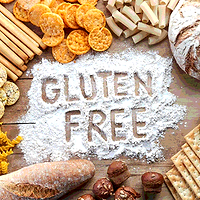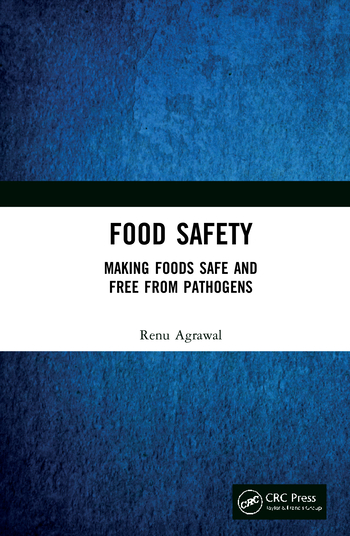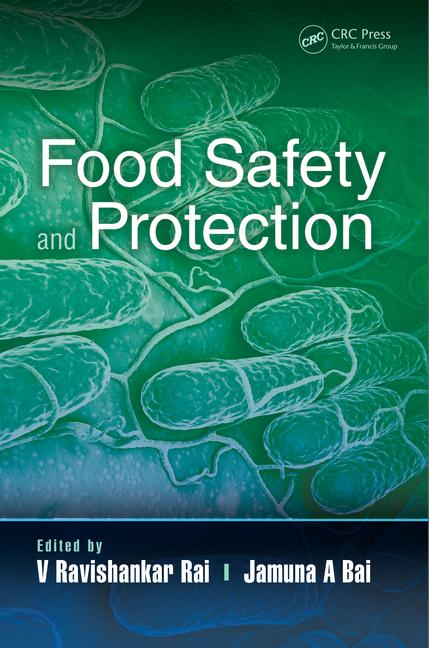Food Safety and Sustainability with Gluten-Free Options

Image credit: Janine Lamontagne/E+ via Getty Images
As a dedicated gluten-free company in operation for over 100 years, Dr. Schär caters to consumers with special nutritional needs. The company's target groups have special dietary requirements, and the effort to produce gluten-free products is not comparable to the production of conventional foods. The first premise is food safety.1
Ensuring Food Safety for Gluten-Intolerant Individuals
Gluten is present in wheat, barley, and rye, and all food and beverage products made with these grains. Examples of gluten-containing foods include bread, pasta, pizza, crackers, cookies, and baked goods—all of which Dr. Schär produces in gluten-free versions. A gluten-free diet is the only treatment for individuals with celiac disease, which is an autoimmune disease affecting approximately 1 percent of the world population. Even small amounts of gluten ingestion can cause a person with celiac disease to become ill, which is why food safety is paramount. Gluten cross-contact occurs when gluten-free ingredient or food is exposed to a gluten-containing ingredient or food, making that gluten-free food unsafe for individuals with celiac disease. Cross-contact can occur at any level of the food production process, from the grains in the field to the processing of those grains to a restaurant setting.1
From field to fork, a global team of over 40 employees at Dr. Schär ensures that every step of the production process at every production site, through to the finished packaged products, meets rigorous standards to guarantee product safety. This begins with the careful selection and sourcing of raw materials. For many of the core grains used in the products, the company works directly with farmers to cultivate the safest, most nutritious gluten-free grains.
For other ingredients, suppliers are carefully vetted to ensure that all ingredients meet the company's strict standards for gluten-free certification. Regular audits and testing are conducted to verify that no gluten-containing grains are used in the production of Dr. Schär products. The company also implements a number of quality controls throughout the manufacturing process, such as thorough cleaning of equipment and regular testing of the raw materials and finished products to ensure that they meet the gluten-free standard of less than 20 ppm. Company production sites are also certified according to Global Food Safety Initiative (GFSI) standards.
Allergen Management for Gluten-Free Products
Allergen management is also particularly important at Dr. Schär, as many people following a gluten-free diet also have other dietary restrictions. All raw materials for the company's gluten-free product range are naturally gluten-free and below the required 20 ppm gluten content. Quality control measures are in place at every stage of production to prevent cross-contact with common allergens. In addition, the production plant in Swedesboro, New Jersey is free from top allergens eggs, dairy, soy, and wheat. The products made in Swedesboro are also certified kosher, Non-GMO Project Verified, and Low FODMAP certified by Monash University.
Sustainability as a Business Pillar
In 2022, the company launched several new sustainability initiatives globally. Dr. Schär has committed to four pillars of sustainability:
- Promoting biodiversity and sustainable farming
- Reducing the impact of packaging
- Reducing carbon footprint
- Encouraging inclusion.
As a global company, Dr. Schär has committed to protecting and promoting the use of minor crops such as buckwheat, sorghum, and millet, many of which the company is growing in the Alpine region of Europe. An initiative called "Re-Cereal" is designed to recover and promote cereals made from minor crops, while the VItaMì Project (Varietà Italiane di Miglio) was launched in 2020 to promote the use of millet. In the VItaMì Project, partner farmers will select new crop varieties, particularly millet, that are adapted to European soil and climatic conditions and grow them to make future Dr. Schär products. Millet is a hardy and naturally gluten-free cereal that has a high fiber, iron, and calcium content, along with a short growth cycle. It is also tolerant to drought, heat, pests, and disease, making it a sustainable and nutritious food source that meets diverse dietary needs and supports sustainable farming. First seeds will be distributed to farmers in 2025, and the seed will be included in the supply chain in 2026.2
Furthermore, the newly renovated plant in Swedesboro plans to operate using solar energy, starting in 2024. The company is also phasing in new packing materials into its production, aiming to reduce its use of plastic materials in product packaging by 12–32 percent (depending on product), when compared to previous packaging, by the end of 2024.
Dr. Schär remains committed to innovation and process improvements that set the standard for food safety and sustainability worldwide.
References
- Dr. Schär. "Dr. Schär Quality Assurance." November 8, 2018. https://www.drschaer.com/us/a/quality-control.
- Dr. Schär. "VItaMì, our project recovering and promoting minor crops." April 24, 2024. https://www.drschaer.com/us/n/vitami-our-project-recovering-and-promoting-minor-crops.
Looking for a reprint of this article?
From high-res PDFs to custom plaques, order your copy today!








